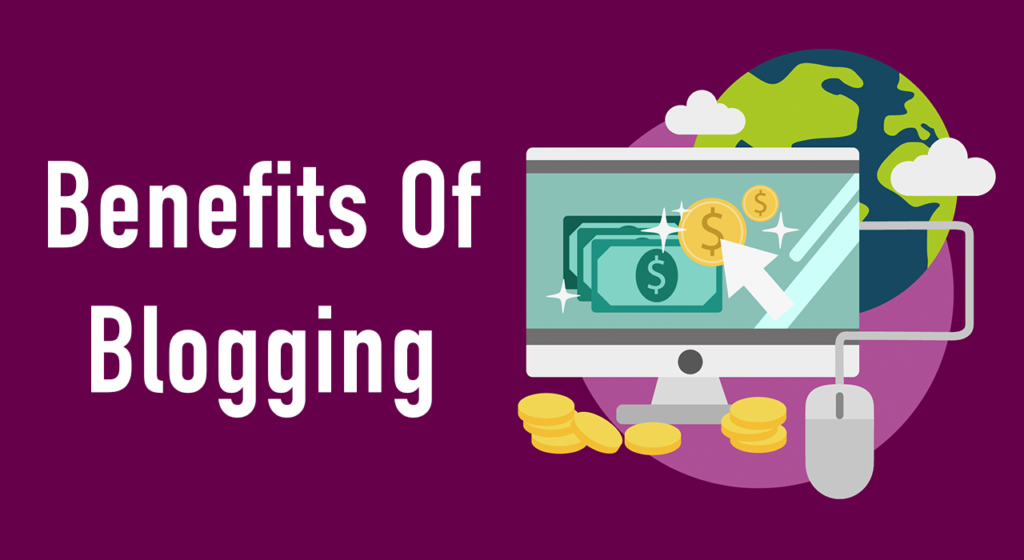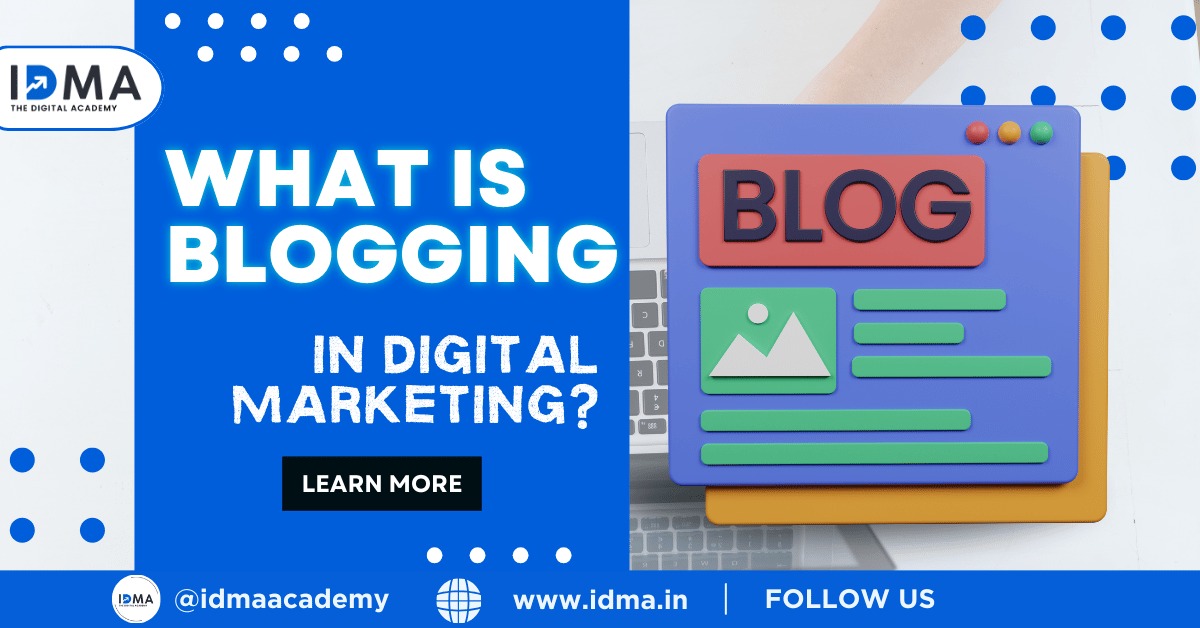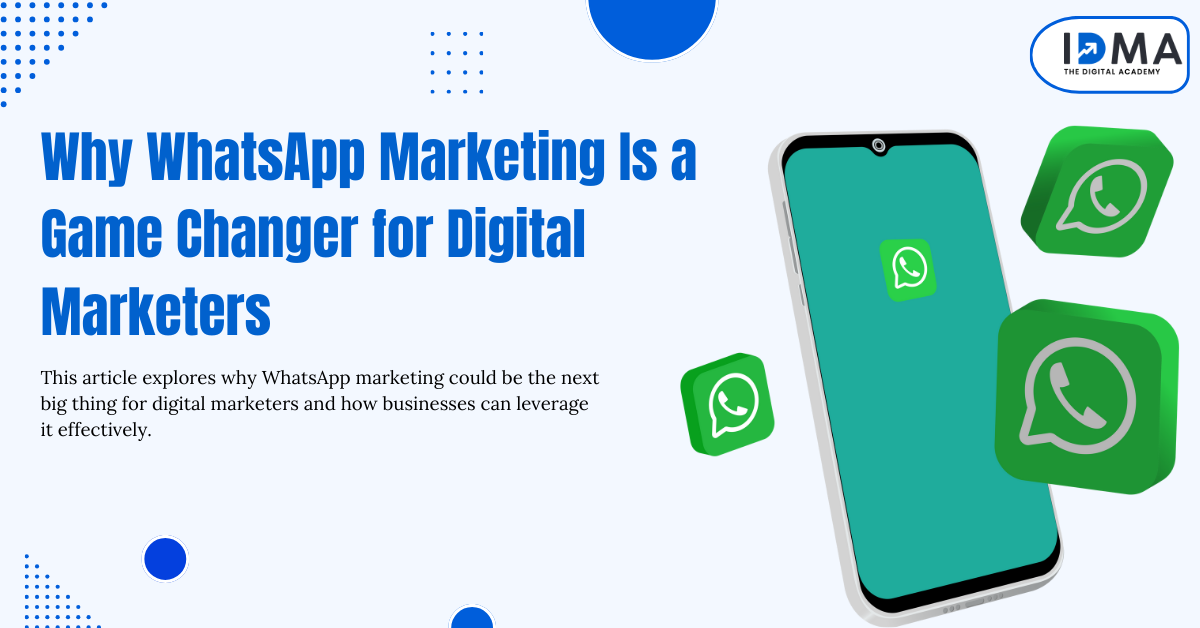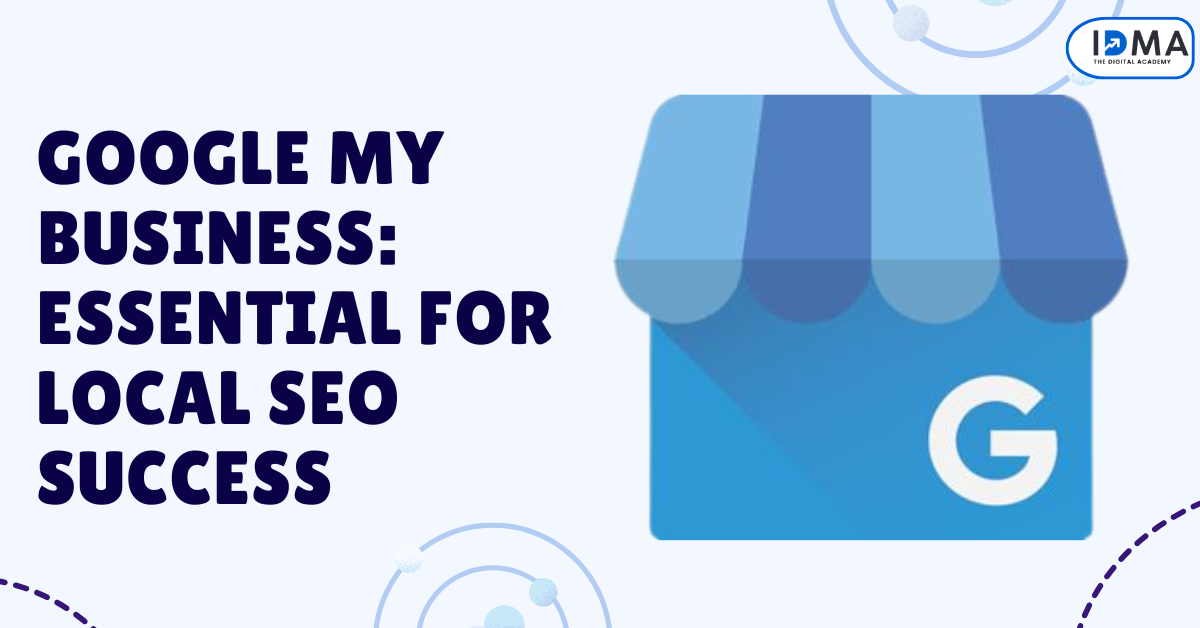What is Blogging in Digital Marketing?
Have you ever wondered why blogging is a cornerstone of digital marketing strategies? In today’s digital world, every successful business is incorporating blogging as a vital element to connect with audiences, build authority, and drive traffic.
In this article, you will learn everything about blogging in digital marketing: its definition, benefits, challenges, and how to start a blog that aligns with your marketing goals.
Keep reading to explore how you can leverage blogging to boost your digital presence.
Blogging in Digital Marketing: An Overview

Blogging in digital marketing refers to the process of creating and publishing consistent, valuable content to attract, engage, and inform your target audience. A blog is like an online magazine that provides regular updates and insights related to a particular industry or niche.
Blogging helps businesses:
- Build relationships with their audience.
- Educate potential customers about products or services.
- Improve search engine rankings by delivering SEO-friendly content.
At IDMA (Indian Digital Marketing Academy), we teach you the art of mastering digital marketing, including the impact of blogging on business growth. Our courses provide 15+ modules with AI integration, offering 100% job assistance, ensuring that you’re well-equipped to thrive in the ever-growing digital landscape.
Why Blogging is Important in Digital Marketing

Blogging is an essential part of digital marketing because it creates opportunities for organic search traffic, builds credibility, and positions a business as an industry leader. It’s also a cost-effective way to nurture relationships with customers and achieve long-term marketing goals.
Let’s dive deeper into why blogging plays such a pivotal role in digital marketing.
Benefits of Blogging in Digital Marketing

Now that we understand what blogging is, let’s explore why it’s crucial for any successful digital marketing strategy. Here are the top benefits:
1. Builds Authority and Trust
When a business consistently publishes well-researched, informative blog posts, it begins to build authority in its industry. Blogging allows businesses to share insights, provide solutions to common problems, and show expertise.
Imagine a business in digital marketing. A blog filled with tips, case studies, and guides positions the company as a go-to resource for knowledge. Over time, readers trust the content, and that trust translates into brand loyalty.
2. Boosts SEO Rankings
Search engines like Google favor fresh, relevant, and updated content. Regular blogging provides exactly that. Each blog post offers an opportunity to rank for specific keywords and increase visibility in search engine results.
For instance, by optimizing your blog with the keyword “what is blogging in digital marketing,” your content will rank higher when potential customers search for this phrase.
The more SEO-optimized blogs you post, the more search engines can index your site, improving organic search rankings and traffic.
3. Increases Organic Traffic
Organic traffic refers to visitors who land on your website from search engines. Blogging plays a vital role in attracting organic traffic, especially when posts are optimized for the right keywords.
Each blog post you publish becomes a new opportunity for people to find your website. The more high-quality content you produce, the more organic traffic your site will attract.
4. Enhances Customer Engagement
Unlike static web pages, blogs offer a dynamic platform where readers can engage with content through comments, sharing, and feedback. This two-way communication is critical in building a strong relationship with your audience.
Engaged readers are more likely to trust your brand and return for more content. They are also more inclined to become loyal customers or brand advocates.
5. Drives Conversions
A well-crafted blog can also help drive conversions. By addressing specific customer pain points, offering solutions, and incorporating clear calls-to-action (CTAs), you can guide readers through the buyer’s journey and encourage them to take action.
Whether it’s signing up for a newsletter, downloading an ebook, or making a purchase, blogs are a great tool for driving these desired actions.
6. Cost-Effective Marketing Tool
Compared to paid advertising, blogging is a relatively low-cost marketing strategy with high returns. Once a blog is published, it continues to drive traffic and generate leads long after the initial post.
Moreover, blogging supports other marketing efforts like social media and email marketing by providing fresh content to share with your audience.
At IDMA, we emphasize hands-on learning. Our students not only learn the importance of blogging in digital marketing but also gain the skills to create compelling blog content that drives traffic and builds relationships.
Challenges of Blogging in Digital Marketing

While blogging offers numerous benefits, it’s not without challenges. Here are some common obstacles:
1. Time-Consuming
Creating high-quality content takes time. From researching topics to writing, editing, and optimizing for SEO, the entire process can be time-intensive. For businesses juggling multiple tasks, maintaining a consistent blogging schedule may seem overwhelming.
2. Fierce Competition
With millions of blogs already published, standing out in a saturated market can be tough. Competition for keywords and audience attention requires businesses to produce unique, high-quality content that truly adds value.
3. Requires Consistency
To see tangible results from blogging, consistency is key. A sporadic posting schedule won’t generate the same traffic or engagement as a well-planned, consistent content strategy.
How to Start Blogging

Are you ready to start blogging? Here’s a simple step-by-step guide to help you get started:
Step 1: Choose a Blogging Platform
There are several popular blogging platforms to choose from, such as:
- WordPress
- Medium
- Wix
For beginners, WordPress is often the best choice due to its user-friendly interface, SEO capabilities, and customization options.
If you’re looking to build a blog for your business, a self-hosted WordPress site might be your best bet. IDMA provides training on content management systems like WordPress, helping you navigate the technical aspects of running a blog.
Step 2: Pick a Niche
Selecting the right niche is crucial. Identify your target audience and focus on topics that resonate with their needs and interests. A well-defined niche will help you build an engaged readership and establish authority in that field.
Step 3: Optimize for SEO
SEO (Search Engine Optimization) is essential to ensure your blog posts are discoverable by search engines. Incorporate keywords like “what is blogging in digital marketing” naturally throughout your content.
Consider the following tips for SEO:
- Use relevant keywords in your titles, meta descriptions, and headings.
- Write long-form content that provides in-depth information.
- Include internal and external links.
- Ensure your blog is mobile-friendly and loads quickly.
Step 4: Create a Content Calendar
Consistency is key to successful blogging. Develop a content calendar to plan your posts in advance and stay on track. Determine how often you can realistically post (weekly, bi-weekly, etc.) and stick to that schedule.
Step 5: Promote Your Blog
Simply publishing a blog isn’t enough. You need to promote it to reach a wider audience. Share your posts across social media platforms, email newsletters, and collaborate with other bloggers or influencers in your niche.
How to Measure Your Blogging Success

To measure the effectiveness of your blogging efforts, track these key performance indicators (KPIs):
- Organic Traffic: The number of visitors coming to your blog through search engines.
- Engagement Metrics: Time spent on the blog, bounce rate, and social shares.
- Lead Generation: How many new leads or conversions (newsletter sign-ups, product purchases) you’re getting from your blog.
- Keyword Rankings: Your blog’s performance for target keywords, such as “what is blogging in digital marketing.”
Essential Blogging Tools for Digital Marketers
To succeed in blogging, having the right tools is essential. These tools can help you create high-quality content, optimize it for SEO, and promote it effectively. Let’s explore some of the most important blogging tools that every digital marketer should know.
Tools to Enhance Content Creation

Creating engaging, high-quality content is at the heart of successful blogging. The following tools can help you generate ideas, structure your content, and ensure that it resonates with your audience:
- Grammarly – This writing assistant tool helps you create error-free, grammatically correct content. It suggests improvements in grammar, tone, and style, making your blogs more polished and professional.
- Hemingway App – Hemingway helps you simplify complex sentences, improve readability, and make your writing clearer and more direct. This tool is perfect for crafting content that engages a wide audience.
- Canva – Visuals are an important part of blogging. Canva enables you to design eye-catching images, infographics, and social media posts that can complement your blog content, making it more appealing.
- BuzzSumo – BuzzSumo is a content research tool that helps you discover trending topics and analyze what type of content performs best in your niche. This can help you develop relevant blog ideas that attract more readers.
- Google Docs – A great tool for collaborative content creation. Google Docs allows you to work on your blog drafts with teammates or editors, ensuring seamless feedback and editing processes.
Tools for Blog Promotion and Analytics

Once you’ve created your blog post, the next step is to promote it effectively and track its performance. These tools will help you maximize your blog’s reach and measure its success:
- Hootsuite – Hootsuite is a social media management platform that allows you to schedule and automate blog promotions across various social media channels. This helps you maintain consistency in promoting your content.
- Buffer – Like Hootsuite, Buffer is a content scheduling tool that enables you to share your blog posts on social media platforms at optimal times, ensuring greater visibility and engagement.
- Google Analytics – Tracking your blog’s performance is crucial to understand what’s working and what’s not. Google Analytics provides detailed insights into your blog’s traffic, including where your visitors are coming from, how long they stay on your page, and which posts generate the most engagement.
- Yoast SEO – Yoast SEO is a powerful WordPress plugin that helps optimize your blog posts for search engines. It offers real-time suggestions on how to improve your content’s readability and keyword usage, ensuring it ranks higher in search results.
- Ahrefs – Ahrefs is an all-in-one SEO tool that can track your blog’s ranking, analyze backlinks, and find relevant keywords to boost your content’s performance. This tool is especially helpful for understanding how your blog is performing from an SEO perspective.
- Mailchimp – Email marketing is an effective way to promote your blog. Mailchimp allows you to create email newsletters that keep your subscribers informed about new blog posts, driving traffic back to your website.
How IDMA Helps You Succeed in Digital Marketing
At Indian Digital Marketing Academy (IDMA), we believe in empowering students to achieve their goals. With over 50,000+ job opportunities in digital marketing, our comprehensive course covers everything from blogging to advanced AI-driven marketing strategies. We provide:
- 15+ modules with AI integration
- 100% job assistance
- Hands-on experience with real-world digital marketing scenarios
Kickstart your career in digital marketing with IDMA and master the skills needed to excel in this dynamic industry.
Blogging is an essential component of any digital marketing strategy. It helps build authority, improve SEO rankings, engage audiences, and increase traffic. However, successful blogging requires consistency, SEO optimization, and active promotion.
Want to learn more about blogging and other digital marketing skills? Join IDMA today and start your journey to becoming a digital marketing expert!




